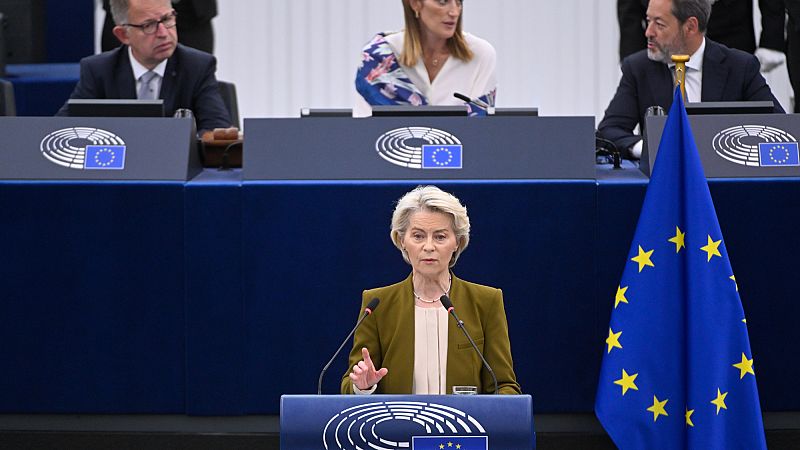EU health agenda goes global in von der Leyen’s address

Since the COVID-19 pandemic, the State of the European Union address has been a defining moment for the EU’s health policy agenda.
This year’s edition appears to mark another shift, as it took health policy in a strikingly different direction, with a clear global emphasis.
Von der Leyen positioned the EU as a leader on the world stage at a time when others—notably the United States—are stepping back.
“The world is looking to Europe – and Europe is ready to lead,” von der Leyen told MEPs.
One of the biggest surprises was her announcement of a Global Health Resilience Initiative, which she framed as a flagship effort to cement the EU’s role in shaping global health.
However, no details have yet been provided on the initiative itself.
The timing of the announcement is significant, though: the US under Donald Trump and other global players are currently less active in international health policy, potentially leaving space for the EU to fill the influence gap.
She also slipped in a personal note: “As a medical doctor by training, I am appalled by the disinformation that threatens global progress on everything from measles to polio,” warning that “we are on the brink – or even at the start – of another global health crisis.”
"For the first time, health has been placed firmly on the European agenda. We therefore welcome the new Global Health Resilience Initiative, and we trust that it will be clearly defined and equipped with sufficient funding to enable its swift and effective implementation," MEP Elena Nevado del Campo (Spain/EPP) told Euronews.
Diseases once considered under control are making a comeback.
Measles, previously eliminated in regions like the United States, is experiencing record-high outbreaks.
In 2025, a major outbreak in Texas resulted in hundreds of cases and multiple fatalities. Mumps is also resurging, often in tandem with measles, particularly in communities with declining immunisation rates.
Whooping cough cases are spiking as well, especially in the US, where both children and adults have been affected.
An estimated 15.7 million children worldwide had not received any routine vaccinations as of 2023, according to a recent study by The Lancet.
Von der Leyen argued that this reality underscores the need for Europe’s stronger role in global health governance.
This is not the EU’s first step in this direction. In November 2022, the Commission adopted the EU Global Health Strategy, making health a central pillar of the bloc’s external policy and tying it to the Global Gateway initiative, designed to foster partnerships built on shared responsibility.
Von der Leyen’s speech suggests not only renewed interest but also an ambition for the EU to take a leadership position in global health, especially as US engagement wanes.
Still, challenges remain.
The EU health budget has been a hot topic recently, as recent developments have hinted that public health is taking a back seat.
Last year it lost €1 billion in support to Ukraine and more recently the controversy circle around the loss of funding of European health civil society.
"A global leadership role can only be successfully assumed if the EU’s internal capacities are simultaneously strengthened. This requires targeted investments in health promotion and prevention, protection, preparedness, and response to cross-border health threats better access to medicines, and the expansion of digital health services," MEP Tiemo Wölken (Germany/S&D) told Euronews.
Whether the EU can match its global ambitions with the necessary resources remains an open question—but von der Leyen’s speech makes one thing clear: Europe intends to be at the forefront of the next phase in global health.
Today

